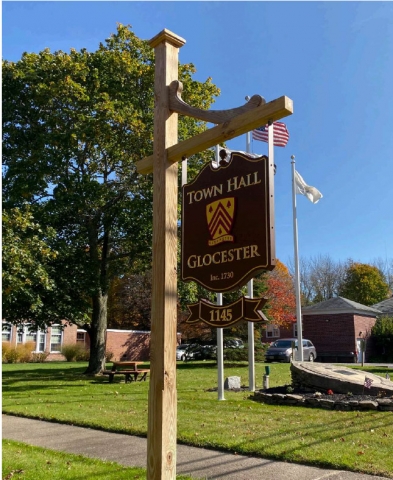GLOCESTER – The Town Council continues to shore up zoning ordinances with hopes to preserve the town’s rural character while realigning local laws with the state mandates approved by the General Assembly.
In July of 2023, the General Assembly adopted a package of bills which made changes to various aspects of zoning, planning, and permitting statutes for the purposes of standardizing and streamlining the development process and otherwise reducing barriers to housing development. The legislation was developed based on the work of the House’s Low & Moderate Income Housing Commission, which includes legislators, housing advocates, municipal officials and developers, and has been meeting since July 2021 to help identify ways Rhode Island can meet its affordable housing needs. The bills are only the first pieces of legislation to be generated through the work of the commission, which is expected to continue its exploration of housing issues for at least another year.

The changes allow many projects to bypass review by the town Planning Board, with new laws that no longer require planning approval to build within 50 feet of the abutting landowner. Now, a project may just get approval from the building/zoning official before moving forward, if no objections are made by notified abutters. Other considerations, like variances, and setbacks on lot sizes, have also been affected.
Town Planner Karen Scott explained that on a 10,000-square-foot lot, the changes could mean practically no setback from a boundary between lots in some cases.
“You’re talking about very, very small setbacks,” Scott explained. “We’re definitely getting pushback on this one already.”
“This is the way the state law was written. There is no wiggle room for us. It is a straight calculation, and the calculation is what it is,” she added.
“You could see a lot of people doing a high five out their windows,” to the person in the house next door, Scott said. “They didn’t leave any room for customization on the municipalities’ part.”
Scott said that anyone who is upset by the changes should contact their state legislator. Copies of the ordinances are available at Town Hall at 1145 Putnam Pike. She said town planners offered their advice about the changes prior to passage, asking state officials to address the objections from rural towns, but it fell on deaf ears.
“Everything is equal across the board, no exceptions,” she said.
“Anyone with planning experience was trying to fight this,” said Councilor Walter Steere. “It doesn’t make sense.”
Streamlining the zoning and building codes for larger districts, while not taking into account the smaller more rural towns and cities, like North Smithfield, Burrillville and Glocester is a problem, noted Town Council President William Worthy.
Scott previously explained that when the legislation was passed, there was not enough consideration given to the amount of time it would take to address the changes in local zoning ordinances.
“When they passed the legislation, they did not provide adequate time to be able to answer effectively what the mandates were,” Scott told the council.
Glocester was one of many municipalities across the state that tried to put in a kind of stopgap to make sure that when these changes went into effect last January, there were not unanticipated consequences, Scott noted.
One major change, she said, is the requirement that any new housing developments to include affordable housing units. She said it means, for example, that if 10 housing units are being constructed, at least one must fall into the category of affordable housing, among other requirements.

The statewide changes aim to streamline development, provide more complete and timely information about housing, and help municipalities meet their affordable housing goals.
Rhode Island is facing a critical shortage of housing as a result of decades of underproduction of rental housing as well as homeownership opportunities, according to the Rhode Island Housing Authority. This has resulted in rapidly increasing housing costs and an extremely low inventory of available homes and apartments, putting safe and affordable housing out of reach for too many Rhode Islanders.
The other major changes affect special use permits, which have to be very strictly defined for all possibilities, potentially eliminating any permits that are not specifically defined in a town’s ordinances. Scott explained that the Planning Board must still sit down with consultants and review town ordinances regarding special use permits to ensure town law is in alignment, and clear in all descriptions. Zoning is divided into various residential, business, and/or industrial zones in most cases.







